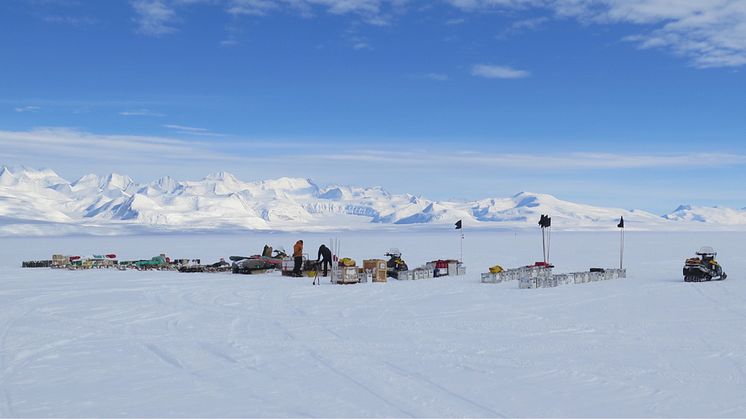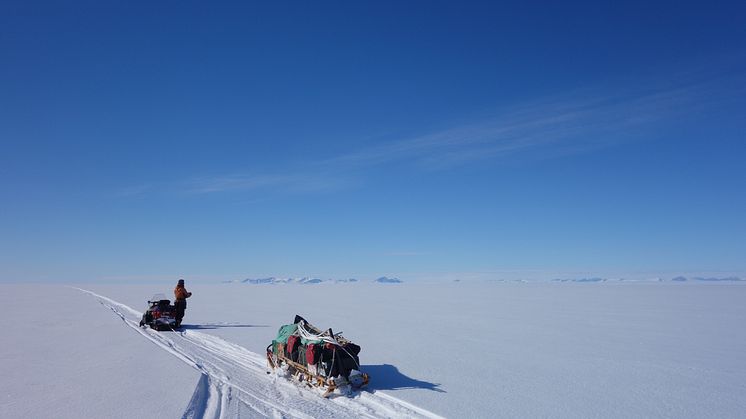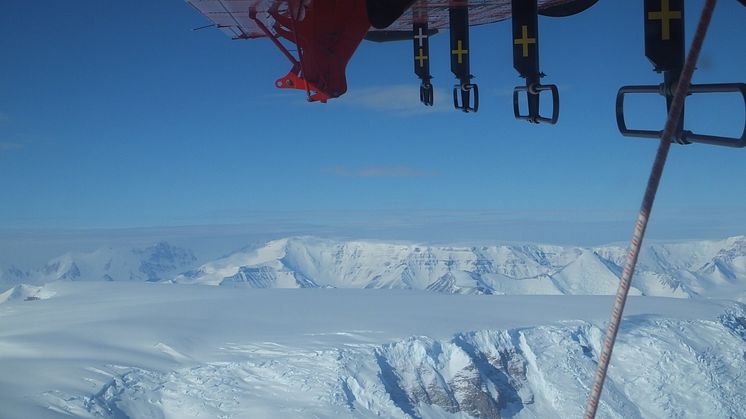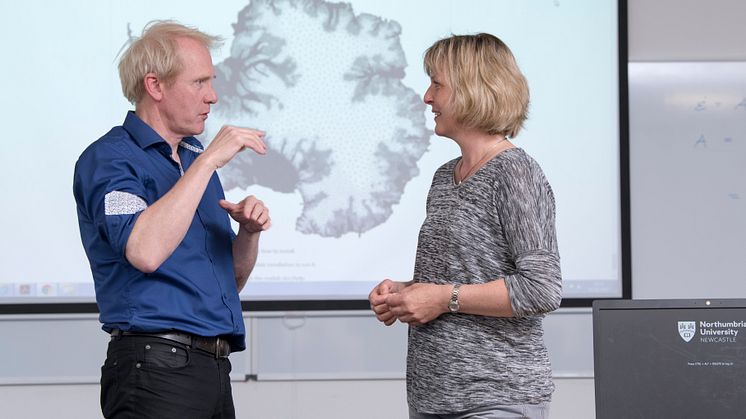
Press release -
Ambitious UK-US Antarctic research mission begins
A team of UK and U.S. polar scientists are about to embark on one of the largest joint Antarctic missions for more than 70 years.
Today marks the start of the first field season of a five-year quest to understand the contribution that the Thwaites Glacier in West Antarctica will make to global sea level. Currently, the amount of ice draining into the sea from this West Antarctic Ice Sheet glacier accounts for around four per cent of global sea-level rise. Scientists are concerned that a collapse of the Thwaites Glacier could significantly raise global sea levels.
Support teams will now begin their work to get field camps and supply depots set up and ready for the arrival of science teams, which will include researchers from Northumbria University, Newcastle.
They will cover about 7,000 km in extremely cold and hostile conditions as the Thwaites Glacier is extremely remote and difficult to reach. Getting science and support teams to where they need to be is a massive joint operation involving tractor traverses, aircraft operations and ship-borne support.
The £20 million (approx. $25 million) research collaboration, funded by the UK Natural Environment Research Council and the US National Science Foundation, involves over 100 scientists and support staff working on eight different projects to understand how the Glacier is behaving and to establish whether it is likely to begin to collapse within the next few decades or within centuries.
Northumbria University is involved in two of these eight projects. Hilmar Gudmundsson, a Professor of Glaciology and Extreme Environments is leading a £648,000 project called PROPHET in which he will use new techniques to model the history and evolution of the glacier and its ice flow to understand how it has behaved in the past. This will help the team to make predictions on how it will evolve in future.
In the second project, Professor John Woodward, Faculty Pro-Vice-Chancellor for Engineering and Environment will spend three months in Antarctica in 2020 to find the best sites to drill into the ice to look for evidence of the ice sheet collapsing in the past. If it has collapsed, the project team will be able to assess how it recovered and how it is currently responding to environmental conditions.
Professor Gudmundsson said: “Antarctica is currently losing mass at an increasing rate, and through its impact on global sea level the ice sheet is already affecting our lives. What happens in Antarctica does not stay in Antarctica!
“New data and numerical modelling done as part of this project promises to provide a much improved understanding of why this area is changing so quickly. And importantly, we will be able to provide better estimates of the likely future contribution of this region to global sea level rise.”
Northumbria University to investigate how and when the Antarctic's Thwaites Glacier might collapse from Northumbria University on Vimeo.
Professor David Vaughan, Director of Science at British Antarctic Survey is the UK’s lead scientific coordinator. He said: “This is a tremendously exciting mission, and a fantastic example of how two nations can combine their scientific and operational expertise to tackle one of the big questions facing society today and in the future.
“I’ve been working in Antarctica for over 30 years and for much of that time we’ve known that Thwaites Glacier holds the key to a much better understanding of sea-level rise. This is our first chance to get a deeper understanding of this ‘wild card’ in West Antarctica.
“I believe that this joint effort will make a real difference to our ability to provide governments with the right information for policy and business actions that will help protect coastal cities, ecosystems and vulnerable communities in the future.”
Lead U.S. scientific coordinator, Dr. Ted Scambos, of University of Colorado Boulder, added: "Thwaites is this massive glacier — so large that even from a plane you can’t see across it — and everything about it is telling us that it is unstable. Its speed has increased, its surface has dropped, the front of it has retreated inland; and it is resting on ground that used to be deep seabed.
“We’ve learned a lot of this from satellites and aircraft, but to go further in understanding how this glacier will evolve in the coming decades, we need to go there. This is the first year of an effort that will return several times in the next few years, bringing instruments we can place on the snow, in the ice, on the land and in the ocean, so that models that forecast ice changes and sea level rise will produce a better picture of the future.”
The five-year programme begins in November 2018 and continues to 2023. During the coming Antarctic field season a suite of scientific investigations will take place at sea, in the air and on the ice.
Topics
Northumbria is a research-rich, business-focused, professional university with a global reputation for academic excellence. To find out more about our courses go to www.northumbria.ac.uk
If you have a media enquiry please contact our Media and Communications team at media.communications@northumbria.ac.uk or call 0191 227 4604.










